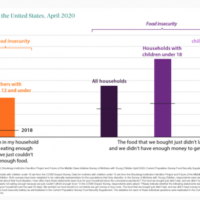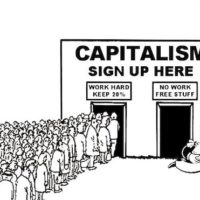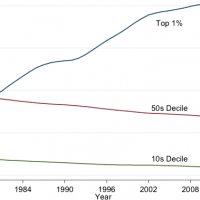-
The inevitable financial crisis
Like a traveler sailing the Archipelago who sees the luminous mists lift toward evening, and little by little makes out the shore, I begin to discern the profile of my death.
— Marguerite Yourcenar, Memoirs of Hadrian -
Free market genocides: The real history of trade
Yves here. This piece gives a wide ranging, historically based description of how free market ideology supported colonialist exploitation and often expropriation under the banner of trade.
-
Joe Biden could have gone a lot further on student loans
Yves here. There have been a lot of suggestions about how to improve the Biden student debt forgiveness plan.
-
Russia’s campaign in Ukraine: Nearing an inflection point?
Notice how the amount of Western reporting on Ukraine has fallen off dramatically? That’s because the war is going well for Russia and its allies.
-
Michael Hudson v. George Soros on China’s Rejection of “Market” Capitalism
This article would have been very useful if it had stuck to its headline warning, which is more or less along the lines that Xi has made very clear that he’s not going to allow investors, above all foreign investors, to exercise more influence in Chinese business and society.
-
Crypto crackdown: only the beginning?
The cost and time involved in validating Bitcoin transactions makes it unusable in retail transactions. So they will always be foreign currencies, where you have to trade in and out of them into a real world currency.
-
Michael Hudson: America’s neoliberal financialization policy vs. China’s industrial socialism
Nearly half a millennium ago Niccolo Machiavelli’s The Princedescribed three options for how a conquering power might treat states that it defeated in war but that “have been accustomed to live under their own laws and in freedom.
-
Michael Hudson – Changes in Super Imperialism
Yves here. Get a cup of coffee. This is another meaty talk with Michael Hudson, this time focusing on his classic Super Imperialism. Hudson has an updated and expanded version set to go to print soon.
-
The lockdown protestors are not working class
Sarah Jones, in The Coronavirus Class War in New York Magazine, does a neat, tidy job of kneecapping the notion that the anti-lockdown protests are manned by workers who want to get back to their jobs so they can start making money again.
-
Hunger rises dramatically in America
Given the dramatic rise in unemployment, cuts in hours, and sharp decline in gig economy work, it isn’t surprising that hunger is becoming more common, particularly among families with children. Nearly half the U.S. couldn’t withstand a $400 emergency, and most households that have taken hits are seeing bigger income losses than that.
-
After bloody day, Coronavirus meltdown continues. Big danger: Italian and Eurobanks are set to blow
There are so many wheels coming off that analysts and the business press is on coronavirus crisis overload. And unlike 2008, the Fed can’t save anyone from the Grim Reaper.
-
Coronavirus: Bracing for the economic shockwave
The information-aware and many in the medical industry are nervously watching the news about coronavirus spread and mortality rates. What we know so far isn’t pretty.
-
The “fixing capitalism” headfake
It’s not hard to see why young people are embracing socialism. It isn’t simply that they can see a probable grim future under capitalism as they know it: more and more low-wage, high surveillance jobs versus more budget and psychological stress as most also have higher fixed costs (rentier housing costs, student loan payments, even more “asset lite, rent heavy” systems, ever-escalating health care costs).
-
Everything you thought you knew about Western Civilization is wrong
A Review of Michael Hudson’s new book AND FORGIVE THEM THEIR DEBTS
-
Are the latest Russia sanctions really about forcing U.S. LNG on Europe?
Unlike past sanctions against Russia, which European governments have backed, albeit with some grumbling, since some countries, particularly Germany and the Netherlands, have commercial ties with Russia, the EU is opposed to the latest US campaign.
-
Globalization and executive compensation
Growing inequality has been one of the most salient features of the US economy over the last 40 years. A variety of explanations for this rapid growth in top incomes have been proposed, including growing firm size new technology, the market for superstars, poor governance, and changes in top tax rates.
















